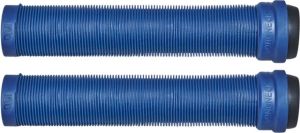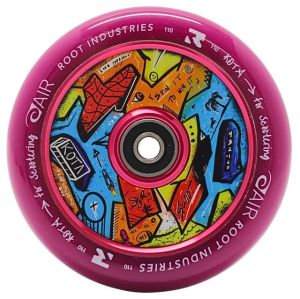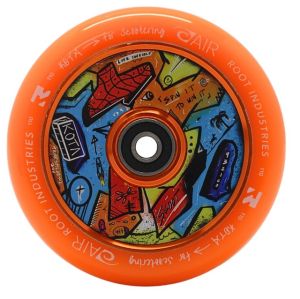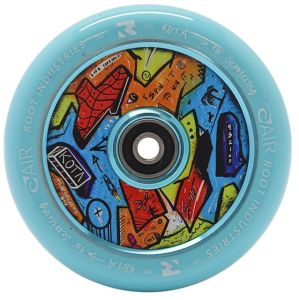Колелцa
SCOOTER WHEELS
If you want to learn something about freestyle scooter wheels, you must first of all be willing to do a now almost forgotten activity - reading.
Wheels are a basic component of freestyle scooters. It is important to note that while freestyle scooter wheels are designed for freestyle riding and are therefore durable, they are NOT indestructible. Like any human activity, riding a freestyle scooter requires the heavy involvement of your brain. You could also benefit from another one or two factors: Alteration of the laws of physics or the chemical table of elements. :-)
Of all the components that make up a scooter, it's the wheels that are most sensitive to surface quality. Sharp edges, shards, pebbles, etc. destroy (chip) the PU of the wheels. This is not a defect of the wheels, instead, a defect of the surface you ride upon.
The wheels consist of three parts: the core, the PU (polyurethane) and the bearings.
The vast majority (99.5%) of wheels are compatible with 8mm diameter axles. Only a very small percentage (0.5% or less) of wheels is designed for use with 12 mm diameter axles (8STD vs 12STD).
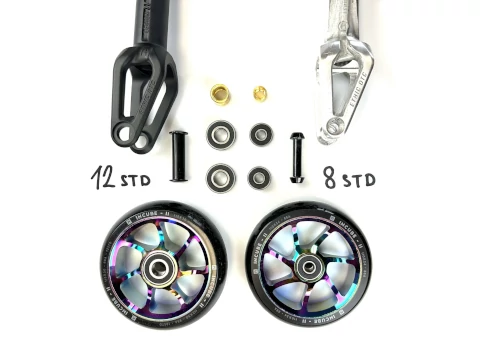
Spacers
This topic is covered in the . At this point it is worth remembering that when replacing bearings, the keeping of the original spacers is advisable.
Wheel cores
The wheel cores are made of either nylon or aluminium. Nylon cores are only used on very cheap wheels for beginners. The durability of a nylon core is limited. The rule of thumb is that wheels with nylon cores are only somewhat good for entry-level riders to practice basic tricks on.
On the other hand, aluminum cores are basically indestructible. The full aluminium cores are by far the toughest.
An important part of the wheel production is the process of attaching the PU to the wheel core preventing dehubbing, i.e. the PU separating or unpeeling around the circumference of the wheel core or part of it. The resulting quality of the PU bond with the wheel core is affected by the adhesive used, the composition of the PU, but also the shape of the groove around the wheel core, upon which the PU is seated.
We often hear questions like "Which wheels are the fastest?" There is no clear answer to this.
Several factors affect the speed of the wheels:
- PU hardness: The harder the PU, the faster the wheel.
- Bounce: The more flexible the PU, the faster the wheel.
- Condition of the bearings.
- Wheel diameter: The larger the wheel diameter, the faster the wheel.
- Surface quality.
- Your gut feeling :-)
What is PU hardness?
It stands for polyurethane hardness. For freestyle scooter wheels, PU hardness ranges from 85A to 91A. The standard is 88A. A harder PU does not necessarily mean a faster ride.
PU hardness and skatepark riding
Is a hard PU or a soft PU more suitable for skatepark riding? The general opinion is that a harder PU is more suitable as it is faster, more aggressive in the ramps. On the other hand, softer PU is more suitable for street riding.
WHEELS CAN BE CLASSIFIED ACCORDING TO THE FOLLOWING CRITERIA
a) Diameter
100 mm, 110 mm, 115 mm, 120 mm, 125 mm. The larger the wheel diameter, the faster the wheel. The larger the diameter, the easier the wheel can handle small anomalies.
b) Wheel core material
Nylon vs. aluminium
c) PU hardness
See the description in the text above.
d) Wheel core design
Wheel cores can be full, spoked or hollow.
Spoked cores are lighter than full cores but are less rigid.
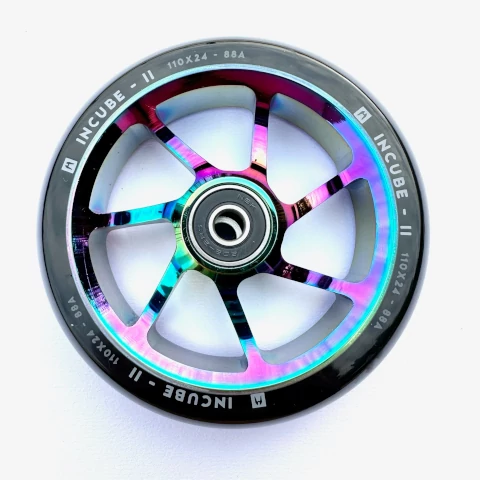
Hollow cores are lightweight and thanks to their flat shape, attractive graphics can be applied to them. Hollow cores are less rigid than full or spoked cores.
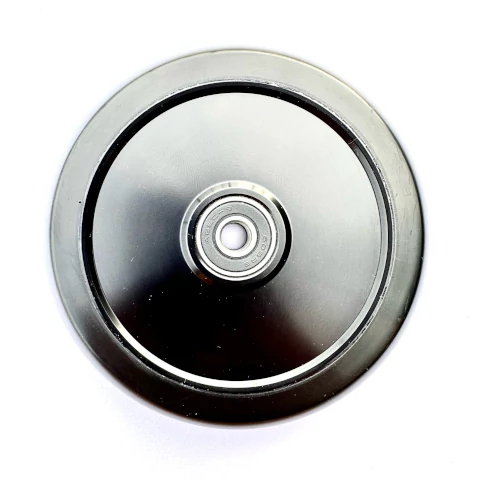
HOW TO EXTEND THE LIFESPAN OF THE WHEELS
1) Treat your scooter well. Don't throw it around.
2) Perform tricks in a clean manner. Smooth landings are of paramount importance. Keep the landing as close to the axis of the trick as possible. If you fall off the axis of the trick, you risk dehubbing the PU.
3) Avoid riding on poor quality surfaces, i.e. no rocks, sharp edges, shards, etc.
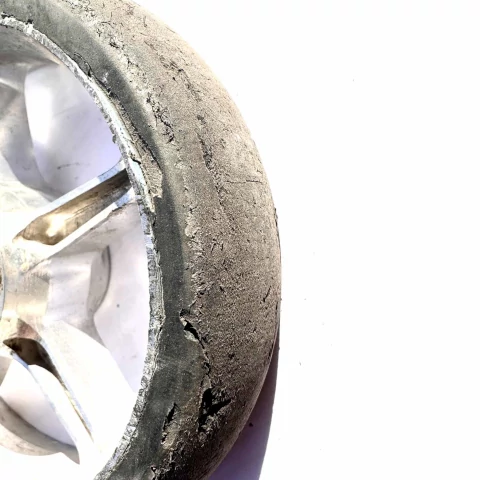
4) Do not drift and powerslide! Drifting creates flat spots on the PU.
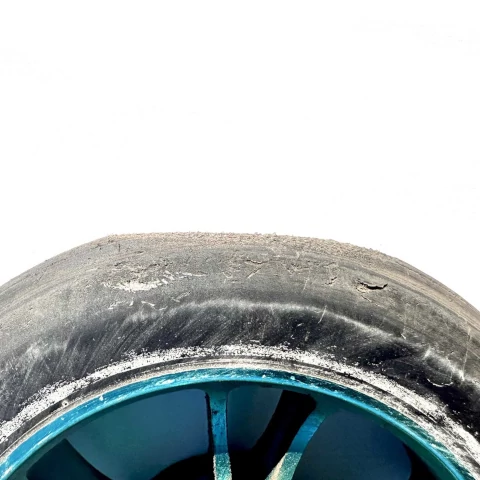
5) Use the for the purpose for which it was intended. The brake was designed to help in performing tricks! The brake is not supposed to be used to stop the scooter instantly. Avoid stepping on the brake continuously. There is a risk of flat spots forming on the PU and the wheel turning into a polygon. This is irreversible damage.
6) Avoid riding through narrow longitudinal gaps. Narrow gaps can damage both the PU and the wheel cores.
7) Do not lend your scooter to friends. They may weigh 30kg more and have a completely different riding style.
HOW TO CHOOSE THE RIGHT WHEELS
1) If you are currently using 100mm wheels and want to upgrade to 110mm or even larger wheels, make sure your current scooter set-up (fork, deck and brake) is compatible with this diameter.
2) Wheels with nylon cores are not the right choice
3) If you prefer street riding, choose wheels with softer PU.
4) If you prefer park riding, choose wheels with harder PU.

